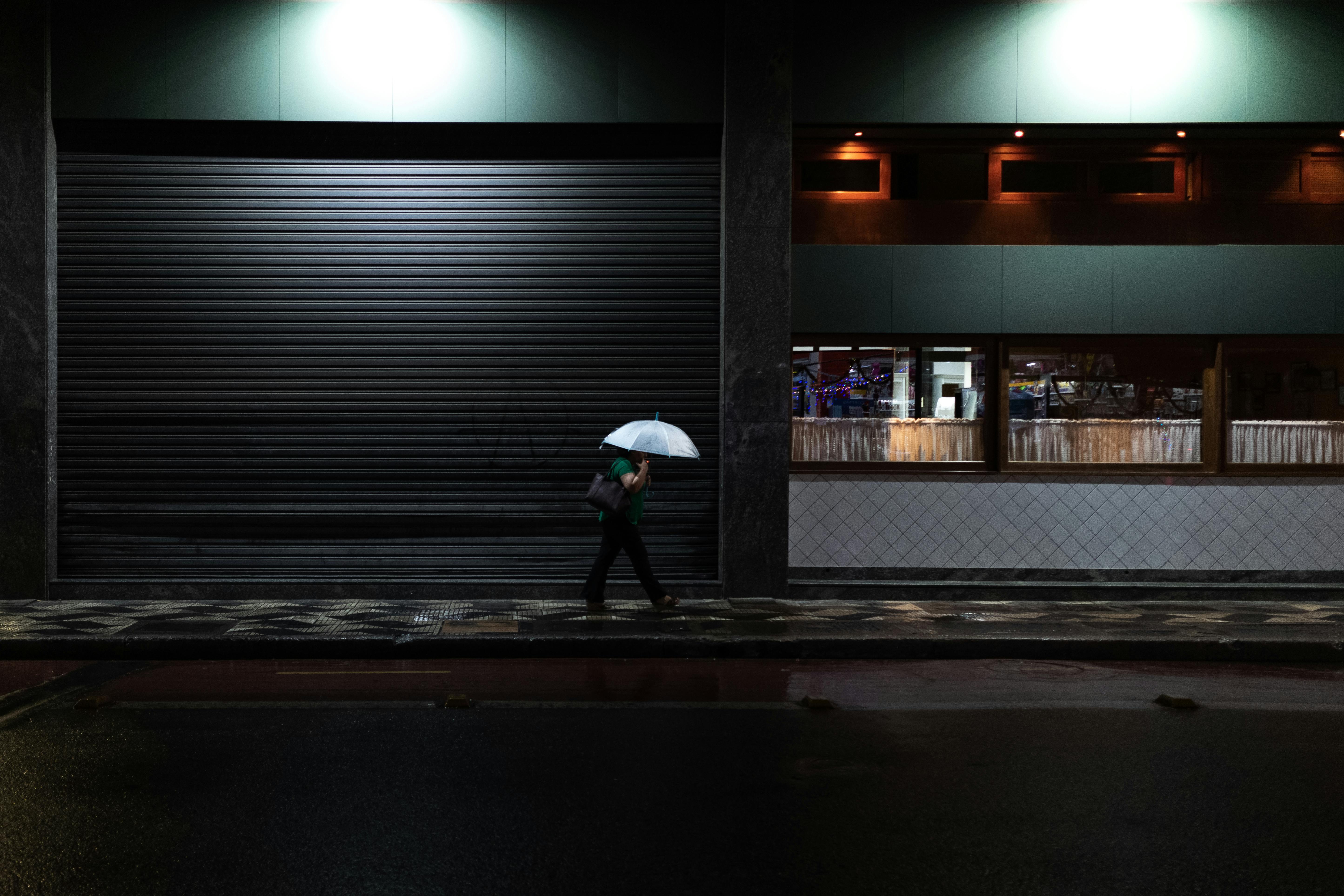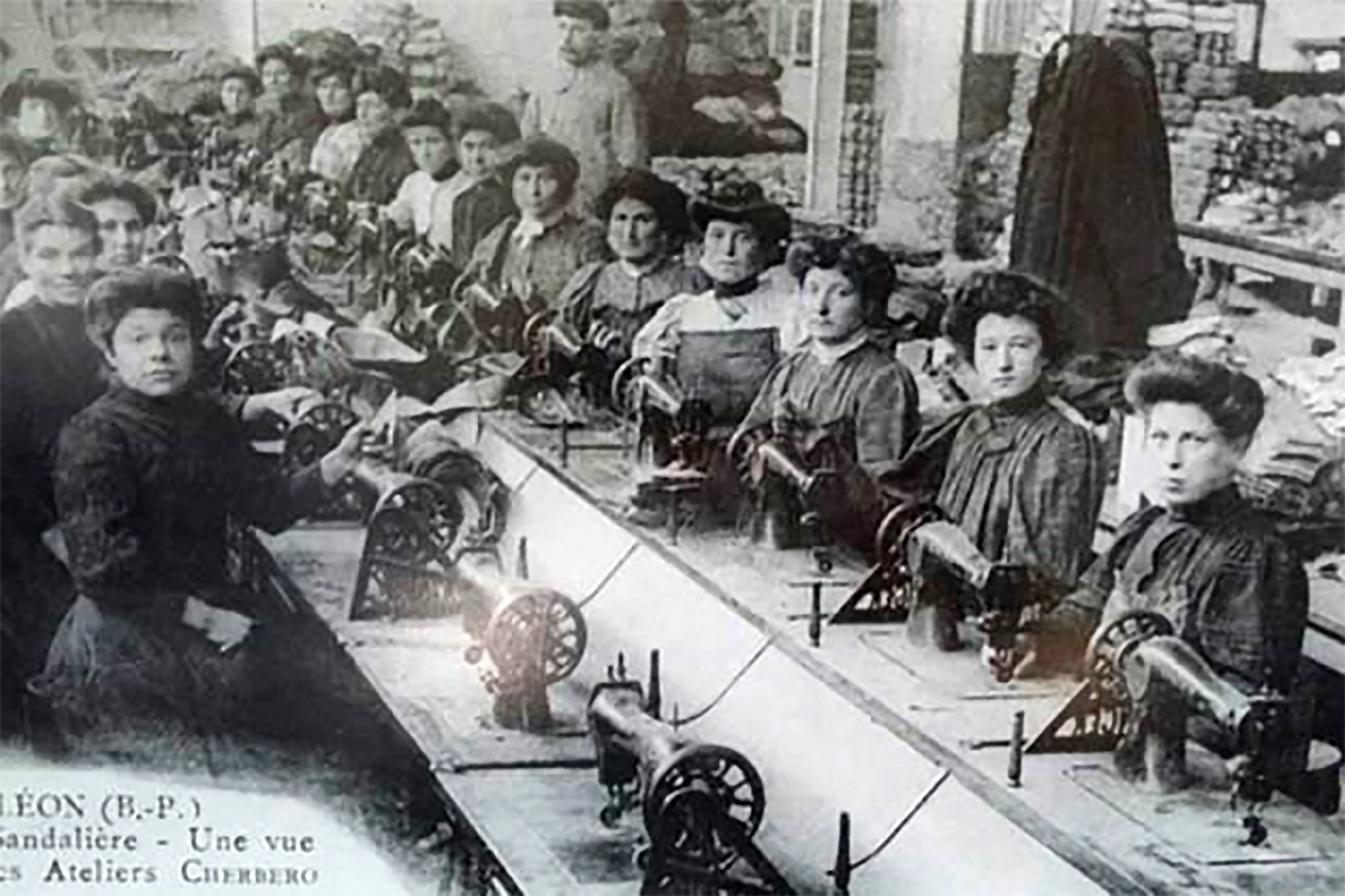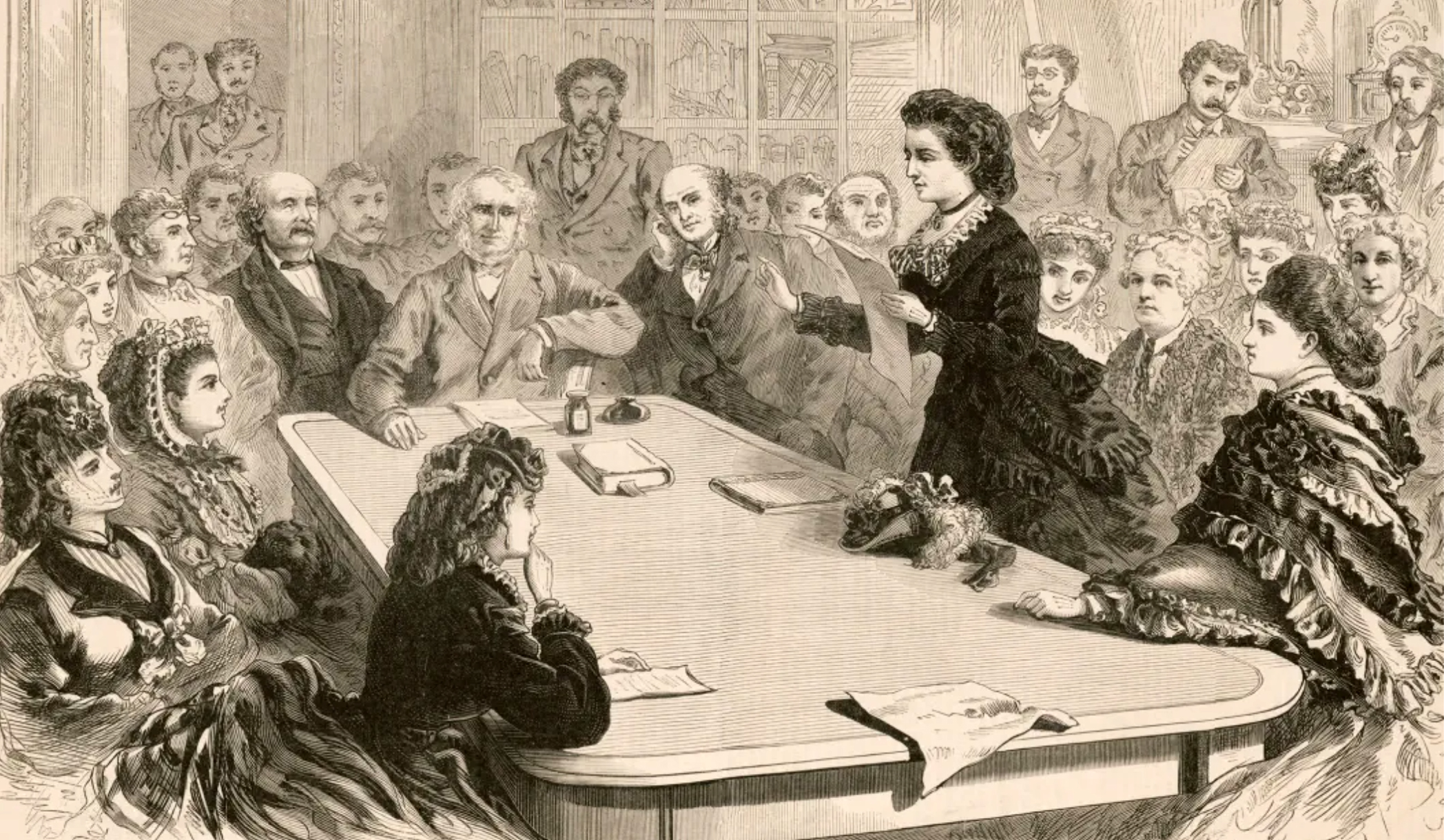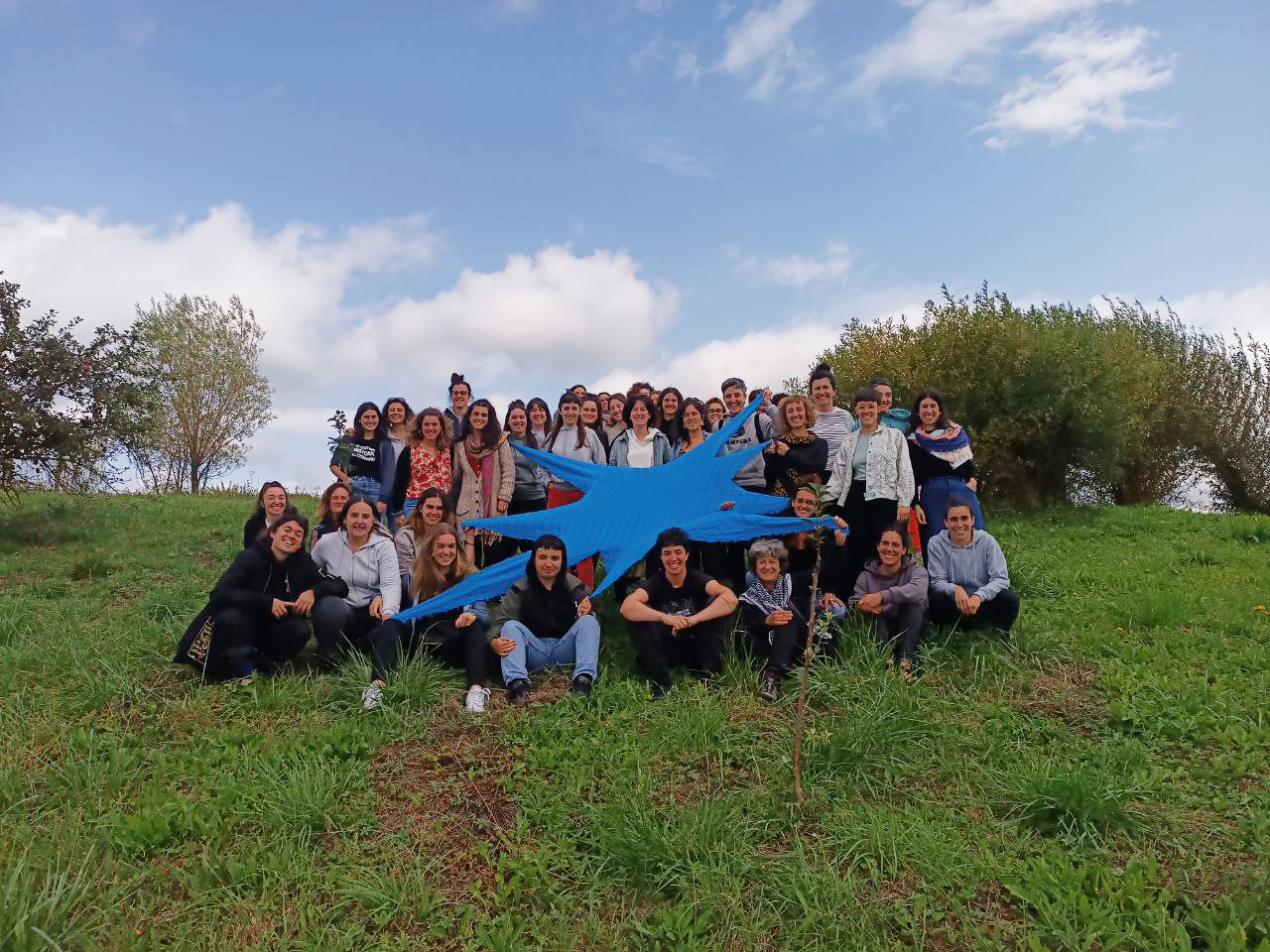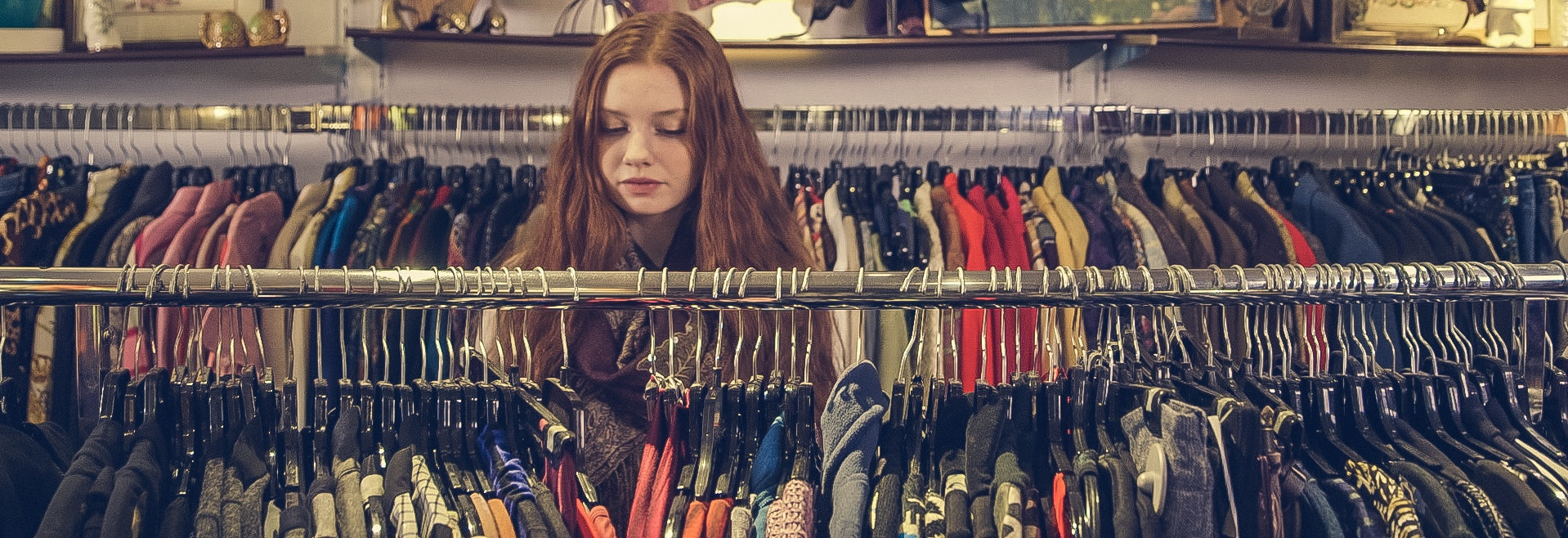"We should use intensity as a feminist strategy"
- In 2012 Ana Requena (Madrid, Spain, 1984) was one of the founders of the digital journal elDiario.es. In 2014 he created the blog Micromachismos, which has subsequently received several awards, and since 2018 he is the chief editor of gender in this media. He has convinced us in the center of the Madrid district of Malasaña to discuss the book Intensas (Roca, 2023) and the feminist journalism he has just published.

Let's go to the starting point. When and how did you immerse yourself in feminism?
Since I was Tiki, I felt interested in feminism. More than one will find it naive, but it has been. I remember, for example, that I rejected Barbie, a mom gave me a gift, and I called her Shit. Or, when I was 7-8, when my brother was born, the drugstore salesman once asked us if I was a boy or a girl, to give him a pink or blue package; I told him I was a girl, because I was angry that being a girl or a boy would impose a color. I thought things had to be done differently. In addition, my feminist conscience was influenced by the work of my mother in the first open reception center in Albacete for battered women in the 1990s. When I was six years old, I knew this previously unknown reality.
And how did journalism enter your life?
As with feminism, I have always felt the two pulsations firmly. I liked reading and writing, as a teenager, I started writing a journal, I read the newspaper and wanted to know what was going on in the world. I've always been clear that journalism was my calling, as a tool to change the world.
When you were 20, you stepped on the first writing. It's been 18 years, do you still think journalism can change the world?
Sometimes I think I'm naive, but I keep that idealism, yes. For all these years I have seen a lot of ugly things, but I have also known the strong commitment of many journalists to transform the world. I've met those of you who are convinced that journalism is essential to transforming people, mentalities and imaginary society. And of course, saying that journalism can change the world doesn't mean that it always does, but I'm clear that many professionals work from that point of view. I, at least, work around.
You have just published the book Intensas by the hand of the editorial Roca. What are you looking for with this book?
I wanted to claim intensity as a life engine. We often feel negative, but if intensity serves to set limits that we don't want to cross, maybe we should use it as a feminist strategy to break those limits that impose on us. In short, this supposed intensity allows us to be in contact with what we want and don't want, with anger, with anger, with desire... and being in contact with all that brings only good things. What happens is that in our society it can be disruptive, because intensity leads us to places that are outside mandates, stereotypes, and also those around us, that are not used to seeing us out of limits.
.jpg)
Remember when they made you feel the first time that it felt worth?
Well, I don't know. What I remember is that in adolescence, I was getting adverse reactions from the claim of feminism. Not in my family, but in school or institute. When I said I was a feminist, for example, they made me feel that I was inadequate by many friends and also by teachers. The truth is, I felt alone in that fight. So when feminism is criticized now, because it's becoming commodification, I don't understand: of course, I'm clear that it's important to keep the base of movement, because the system always tries to subsume this upward movement. But I'm really glad when I see girls claiming feminism on the street. Because that means that they no longer reject them and that they feel supported in that claim.
Later, I'm sure, they made me feel sorry in the workplace, because as a feminist, people have often questioned not only my ideas, but also claimed me as a feminist as a journalist. And of course, I've been made to feel an incompensate in my relationships with men, especially.
"Feminist journalism has managed to put many silenced issues on the media agenda"
As a journalist and editor-in-chief of gender elDiario.es mentioned the work, his job is, among other things, to expose things the patriarchy does not like. How does our work influence this intensity?
As we go against the current, our intensity is higher. In short, when we do journalism from a gender perspective, we question various dynamics to do journalism. We work against inertia, against the dynamics implemented over decades. And this work is hard on many occasions.
Why is it difficult?
First, because when we go against the journalistic model that has been imposed in too many decades, it is common to question our work, and that is exhausting. Because as they question our work, we suffer internal and external harassment. And I think it is important to insist that the journalists who work on issues related to feminism, equality or gender receive insults and personal aggressions repeatedly... That is why I demand this intensity in the book because it allows us to move forward.
In the first chapter he mentions a number of situations that have made you feel sorry. For example, at a working meeting, when you release vehemently, when a journalist says, “That’s how you lose your mind.”
The problem is that it is legitimated to release a man passionately. We've been educated in some way to see these men, and we've also normalized them when they exercise strong leadership. However, we are strongly reproached that when we tend to let go of our forms, it takes away our reason. Basically, the strategy is very simple, because with these comments they seek to demotivate us without the need to argue. They override our forms to override them directly. And that happens at the professional, political and personal level.
Has that happened to you many times?
Yes, I have sometimes felt that my proposals have been undervalued. And I think this has to do with feminist journalists seeing us as activists losing professional criteria. Several journalists believe that in our work we do not offer adequate and quality professional content.
But is it incompatible to be a feminist and rigorous journalist?
Under no circumstances. Making feminist journalism makes explicit a starting point where we live in a system of seemingly neutral but not real values. So the challenge of my work as a journalist is to recognize that false neutrality. Denounce that the value system causes multiple inequalities, discrimination and violence, among other things, and that we must go against it. And of course, this is compatible with being a rigorous journalist and applying criteria of truthfulness and credibility.
Isn't the problem that our rigor is uncomfortable for society?
Of course, what they expect from us is that journalism should continue with inertia and be faithful to the mandate of discretion that has been imposed on us, that we should go wherever we go, because our mission is to guarantee the welfare of the environment. But suddenly, when a woman opposes that inertia and claims that things can be done differently, it's uncomfortable. That is why our work causes concern, disruption and confusion.
"It's common to question the work of feminist journalists, it's exhausting."
Despite the difficulties, the commitment of feminist journalism has generated many positive things. They have published numerous studies that have been the turning point of elDiario.es. How does it live?
I am pleased, and it is certainly the main reason for continuing to do what I do. We have emerged on the media agenda and in society many issues that were hitherto silenced, and that is undoubtedly an achievement of feminist journalism.
How do you see the health of feminist journalism today?
If there is a widespread impact, obstetric violence or everyday machismo are present in media of different ideology. Subsequently, each media addresses issues from its position and uses energy and resources in one way or another. According to this, one can verify whether or not a media has a journalistic commitment with a gender perspective.
There are several media outlets that have chosen to do better and that effort is evident; others may not have done so much, but in some way they have been affected by the transformation that the media agenda has undergone. And finally, there are other media outlets or websites that, to name it in some way, oppose; they just look for an irritable click from those who get angry about putting a headline or another.
Recently, they've published research that has been silenced for decades, and I'm led by excessive cesarean sections or the hostesses issue. Are there any interests to hide these kinds of issues?
Like the ones you mention, there are investigations that are difficult to emerge, yes, but the ones that most frustrate are those that we do not publish. This becomes entrenched and I think it is important to visualize it, because behind many works there is a great struggle. And the risks, the threats of denunciation or the fear of talking by one or more sources…
.jpg)
I would like to ask you about politics and feminism. How do you assess the work of the Ministry of Equality in the last term?
I believe that significant progress has been made in the field of equality in the last legislatures. I believe that in recent progressive governments the Ministry of Equality has been an impediment to the deployment of public policies, albeit with shame, in the surveillance system of the Spanish State. The Sexual Freedom Act has meant an important paradigm shift, beyond the criminal, for example, in relation to less talked crisis centers or biological testing. But I think the sad thing is that the continuity of the Ministry of Equality depends on the next government.
"The exclusion of Irene Montero Sumar has nothing to do with feminism, but with a political
and partisan conflict."
Of course, the ministry has had skills and errors. It seems, however, that the most serious fault cannot be recognised either. I do not agree at all with everything they have done, nor with all the arguments they have used to defend all their policies. There are issues I do not defend, many others. But, above all, I demand the existence of a Ministry of Equality with a feminist perspective.
Irene Montero’s contribution has been highly criticized by various sectors of the feminist movement.
Much of the aggression against the Ministry of Equality has come from members who understand feminism differently. They believe that their conception is the only way to understand feminism. And if you think that only feminist institutional power can be in the hands of those who have the same conception -- they understand any other path as a nonsense. It is a pity, because this polarisation has allowed dialogue or debate on the policies in which work was being done. The atmosphere was so muddy, it seemed to be in one place or another, and I believe in the nuances. The greatest sadness of recent years has, in my view, been that there have been few real spaces for productive dialogue.
What do you think of Irene Montero’s veto?
The exclusion of Irene Montero Sumar has nothing to do with feminism, but with a political and partisan conflict. And I think it is serious now to infer that Montero’s mistake is the cause of the rise of the extreme right and anti-feminism. It's much more complex.
Maule, 1892. Eight women from the Salazar Valley headed home from the capital of Zuberoa, but on the way, in Larrain, they were shocked by the snow and all were killed by the cold. Of the eight, seven names have come: Felicia Juanko, Felipce Landa, Dolores Arbe, Justa Larrea,... [+]
A few weeks ago we heard Trump in the televised debate on the existence in his country of democratic states that authorize abortion after the birth of his son.
Judging by the character, it seems an absurd and improvised idea, but that same falsehood was heard in 2019 by Adolfo... [+]
Born 2 April 1970. The newspaper New York Herald published a letter with activist and broker Victoria Woodhull (1838-1927), in which he realized his candidacy for the U.S. presidential elections of 1872. It is the youngest candidate in history, who would be 34 years old on the... [+]
The case of Mazan is mentioned in the French media: a woman drowned with sleeping pills by her husband to put her between the legs of other men to be raped. That for ten years and three numbers: 92 violations (at least), 72 men and 51 trial violators. Gisèle Pélicot, 72, did... [+]











